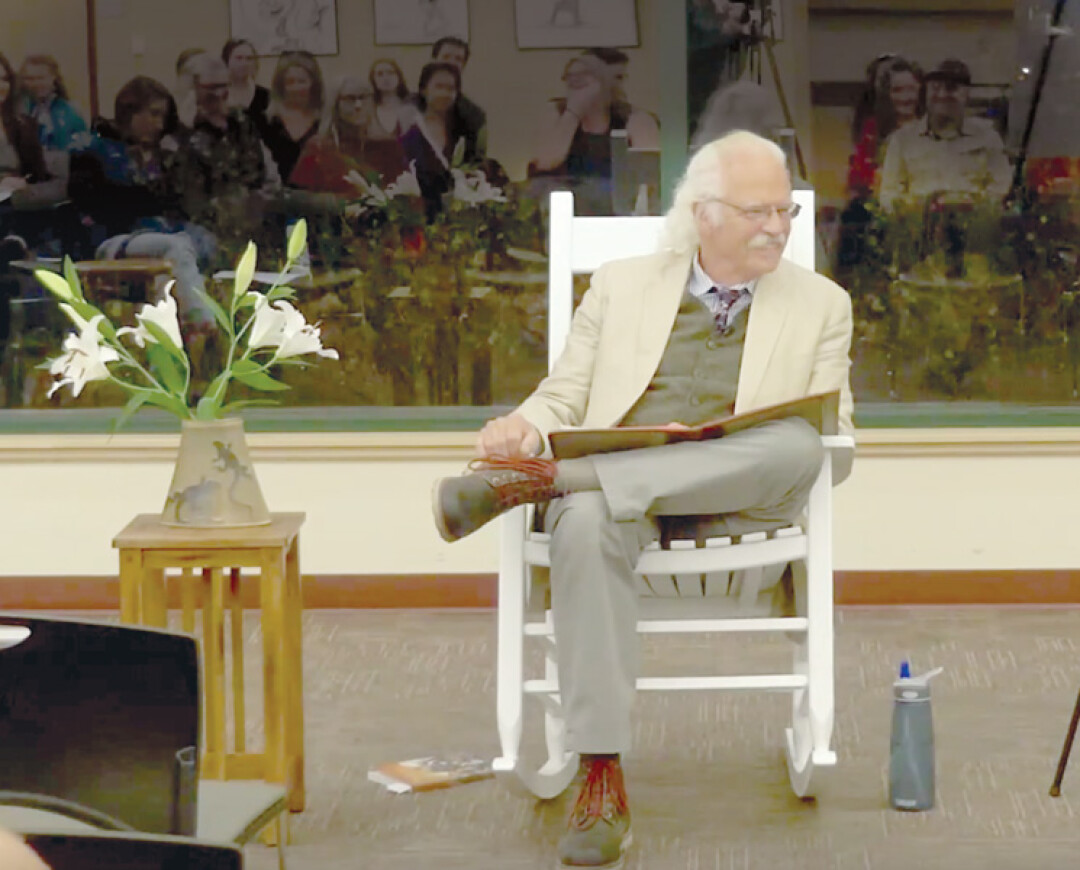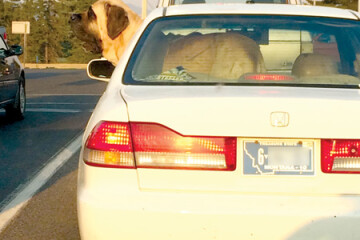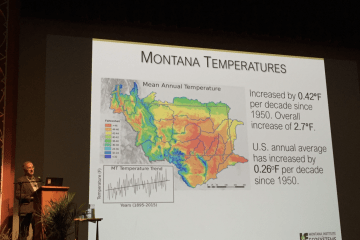After the Apocalypse
Earth, Imagination & Rebirth in Bozeman
“The apocalypse that kills the soul of the world is not at the end of time, not coming, but apocalypse now; and Newton and Locke, Descartes and Kant are its Horsemen. The fantasies of the literal end of the world announce, however, the end of this literalist world, the dead, objective world.”
- James Hillman
Maybe you’ve noticed that we’re in deep shit. Perhaps the increasingly frequent climate reports have brought you to a moment of pause and a sober consideration of the global situation. If you’ve been paying attention, you’ll know that our species has twelve years to cut carbon emissions by 45% to avoid unprecedented catastrophe. You may have also seen the recent article which revealed oceans are warming a stunning 40% faster than climate projections anticipated. As numbers and graphs continue bludgeoning us with bad omens from peer-reviewed pulpits, we are required to tie ever-complexifying knots of cognitive dissonance to carry on with the frantic justification of destructive “progress” that goes by the name “Normal.”
I don’t blame anyone for numbing out and turning away from the devastation, the ecocide, the distorted econo-phrenia we’re facing - numbing out is my preferred defense mechanism as well. On a good day I can convince myself it’s probably all overblown and happily make my way to a coffee shop to surf around YouTube. However, I think it’s time we call it like it is: We’re standing by, actively participating in, and unconsciously complicit in a species-wide motion toward, at the very least, unprecedented humanitarian crisis and mass extinction. Take that in. Can you, for just a moment, allow yourself to feel what you already feel? Deep down in there, you know it’s true. Our current way of life is destroying everything beautiful in the name of quarterly earnings and abstract economic growth. That’s the way it is.
If this reality slips through the cracks of the well-constructed defenses we all erect to cope with our spectacle-drunk society...right there, in the vertiginous center of the denial...is an adrenaline-rich recognition that we’re living smack in the middle of the apocalypse. In the original sense of the word, “to uncover or unveil,” we’re being forced into a confrontation with the depravity and inhumanity of the post-enlightenment promise. No longer unfolding on the margins of the world’s greatest monolith, the apocalypse is gazing at us, and into us, from the distraction devices that dictate our lives and paint us the picture of reality we prefer to see. In this culture of collapse, nuance and critical thinking have become an overpriced luxury for our depleted attention spans and so convenience wins the day. Climate change is an interruption that can be mitigated by flipping the channel or clicking unsubscribe.
One narrative offering solutions, the popular one, says it’s a numbers game. If we can just slow our roll, invest in solar, buy green, bike to work, and go vegan, we might make it. In this context, “making it” means continuing business as usual, perched atop a self-proclaimed throne of biological supremacy as objective programmers, efficiently shuffling around earthbound ingredients to create ever-complexifying money games to lose ourselves in. From this story, the reason to tread more lightly on the planet is to go on living as if we’re the only thing that matters.
If that sounds (as I hope it does) like a bad idea, fear not (well definitely be a little afraid), we’ve got another option. The option I speak of, while simple, is the more challenging path. This option starts as a lonely one; it’s a path of deconstructing material assumptions that have been largely unquestioned since the scientific revolution. It’s to go the opposite direction of almost everyone around you. It’s the path of spiritual self-inquiry that not-coincidentally arose around the time humans began proclaiming themselves as something other than earth. This second option is a psychological adventure and a spiritual awakening. It’s the mandatory Hero’s Journey of our time if we’re to last on this planet. It’s learning how to remember that we’re not separate from Earth, life, or anything, other than in our own numbed imaginations.
According to archetypal psychotherapist and long-time Bozeman resident Timothy Tate, “our personal, internal, primal schism is to believe we are separate from Gaia. This estranged state is the source of our discontent and our suffering. The ascendancy of our thinking function and its dominance in both our repetitive self-criticism and obsessive thinking partnering with the worship of unleashed rationality as a modern god alienates us from Gaia’s images, like our rivers, meadows, and mountains.”
In a talk titled “Zoogaia,” given at Bozeman Public Library in October of 2017 (https://www.youtube.com/watch?v=-yy6gqLsKbI&t=2015s), Tim made his plea for a return to the earthly imagination that characterized most of human history:
“Some sort of dissociative split starts to happen when you no longer realize that you’re not ON the planet Earth, you ARE Gaia’s expression. It’s not like, ‘that’s a fun metaphor. That’s cute, that’s enchanting, that’s romantic.’ That’s not where I’m going with this...I’m not talking about voyeurism, about saying how wonderful the planet is. I’m suggesting that until we remember we ARE it, we will continue trying to save the planet while losing ourselves.”
The destruction, the imbalance, the environmental disregard, the bigotry and ignorance and injustice that are so evident in the world are a result of the vast distance most of us live from our own earthed belonging. Somewhere in the rush to rocket ships and skyscrapers and perfected objectivity, we turned everything into an object, including ourselves and especially other people. Inoculated against the enchantment that humans once regarded as the unspeakable essence of life, we live as hungry ghosts, floating along the barren surface of a rich subterranean reserve of imaginal meaning. As Tate claims, “the degree to which you think you’re separate from Gaia is the degree to which you will neurotically suffer.” Based on today’s headlines, we must be pretty damn separate from Gaia.
So what is it that we are being called to? How do neurosis, imagination, and objectivity relate to the planetary movement toward an increasingly inhospitable home? How alarmed should we be, and what can we do? According to Tate, it all comes down to one move.
“Gaia’s fine. She’s been fine before we came, she’ll be fine after we leave. But the question is, in order to access the relationship to Gaia that I’m here to ask you, to beg you, to sing about, to realize, is that of being in balance in your own psyche. There is no other move in my book.”
This shift we’re sensing, the drama and tension increasingly crowding our quiet moments, the tamped-down recognition that things are getting crazy, is not the apocalypse with a big A. It’s not some final planetary doomsday - our species will be eliminated long before that happens (although we’re doing a good job of killing a good deal of life in the meantime). Rather, the apocalypse we’re currently undergoing is a small-a apocalypse. It’s the collapse of our insulated, illusory distance from life. It’s the end of imposing rational order upon an order so grand our minds mistake it for chaos. This small apocalypse is our collective rock bottom and luckily for us, it’s happening while we still have a cosmic rehab facility to call home. For that to matter, though, we have to start remembering. And that’s no easy task.
“To remember who we are in relationship to each other and the planet is the hardest memory to keep alive because of the distractions of this world and specifically the way you think repetitively about the same things....the reality of it is, the harmony and balance of being with this world and being in relationship to Gaia ourselves, is the task of our imagination. You can’t think your way through this.”
We can’t think our way through this. My mind lurches at those words. For all the times someone has told me to “stop thinking so much,” it’s a difficult addiction to break. What Tate (among a growing chorus of voices) seems to be saying is that we have to begin. We have to begin the painful work of disentangling ourselves from the stories of our society, from the stubborn delusion that industrial cannibalism is somehow a worthy pursuit. I’ll end this article with the words of Martin Prechtel and the hope that we can find our way to becoming the type of humans he describes.
“The fact that commercial culture always panders to the lowest common denominator of awareness and taste should not stop us in our personal revolution to become real human beings. If there are enough of such humans, then collectively, real cultures worth living in, cultures that don’t depend on scaredness, scarcity, and sarcasm, could actually begin to cultivate themselves into motion. No longer needing someone else’s rails, we could get off the siding, the plastic could disappear, the butterflies could be released, the river could light up.”


